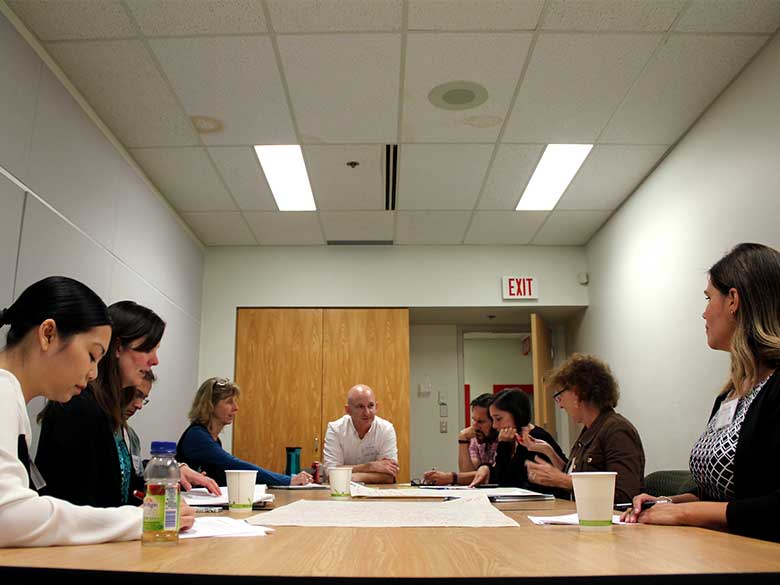On September 28, over 50 health leaders, researchers, faculty members, and people with lived experience gathered in Vancouver for a one-day symposium to discuss initiatives and best practices for patient engagement in health research.
Attendees heard about initiatives and projects from across British Columbia where patients have influential roles in health research decision-making.
Colleen McGavin, the Patient and Stakeholder Engagement Lead for the B.C. Strategy for Patient-Oriented Research (SPOR) Support for People and Patient-Oriented Research and Trials Unit (SUPPORT) Unit, opened the day’s events with a presentation on patient engagement initiatives within the SPOR SUPPORT Unit. She discussed the “spectrum of engagement”: Inform – Consult – Involve – Collaborate – Empower, and how patients use health information to make decisions.

Event attendees heard about patient-focused initiatives from health care practitioners and research leaders. CHÉOS Scientist Dr. Adeera Levin presented her work on patient engagement in the Can-SOLVE CKD Network, Canada’s largest-ever effort to improve care for people with kidney disease. Erin Michalak and Natasha Kolida discussed the ORBIT program at CREST.BD—online, recovery-focused therapy for bipolar disorder. CHÉOS Researchers Drs. Linda Li and Alison Hoens discussed 16 years of patient engagement at Arthritis Research Canada, and CHÉOS Scientist Dr. Rick Sawatzky told attendees about his work with Patient-Reported Outcome Measures.
Other patient engagement projects are led by members of the community. Anne Junker and Vivian Tsang presented on the KidsCan Young Persons Advisory Group, which helps young people learn about research work directly from research teams. Members of the CIHR Canadian HIV Trials Network (CTN) presented on the CTN’s Community Advisory Committee (CAC). CAC Members Kevin Pendergraft (Committee Chair), Claudette Cardinal, and Chuck Osbourne talked about the 24-year history of the CAC, which reviews all CTN study protocols, and is made up of community partners.
To reduce redundancy within the local health research community, symposium participants also broke out into two brainstorming groups. In the morning, groups discussed current patient engagement activities and resources, in the afternoon the groups addressed gaps. The presentations and results from the brainstorming groups will returned to participants, likely on the InspireNet platform.
The event took place at St. Paul’s Hospital, and was a co-hosted by CHÉOS, the UBC Department of Medicine, Fraser Health, VCHRI, and PHCRI.
Other Helpful Links:
Patient Engagement Handbook – Fraser Health
PROMs
ORBIT – Crest.BD


